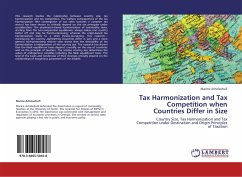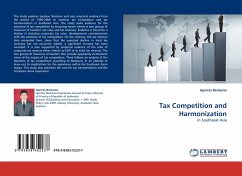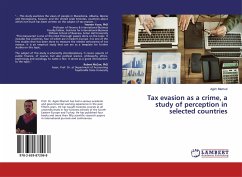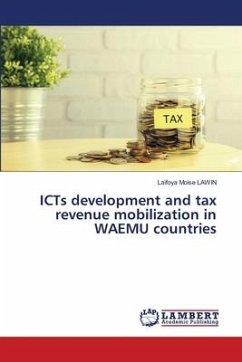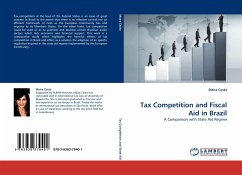This research studies the relationship between country size, tax harmonization and tax competition. The welfare consequences of the tax harmonization (the convergence of tax rates towards a common tax vector) has been shown to critically depend on the tax principles under consideration: The destination-based harmonization of commodity taxes, starting from the non-cooperative equilibrium, always makes one country better off and may be Pareto-improving; whereas the origin-based tax harmonization leads to a strict Pareto-worsening. This research introducing the country asymmetries (countries differ in size) and a more general tax-harmonizing reform also shows that the desirability of tax harmonization is independent of the country size. The research has shown that the Nash equilibrium taxes depend, crucially, on the size of countries and on the principle of taxation. The relative country size determines the values of endogenous variables including the Nash equilibrium taxes. The level of the taxes and tendencies of their changes critically depend on the relationships of exogenous parameters of the models.
Bitte wählen Sie Ihr Anliegen aus.
Rechnungen
Retourenschein anfordern
Bestellstatus
Storno

